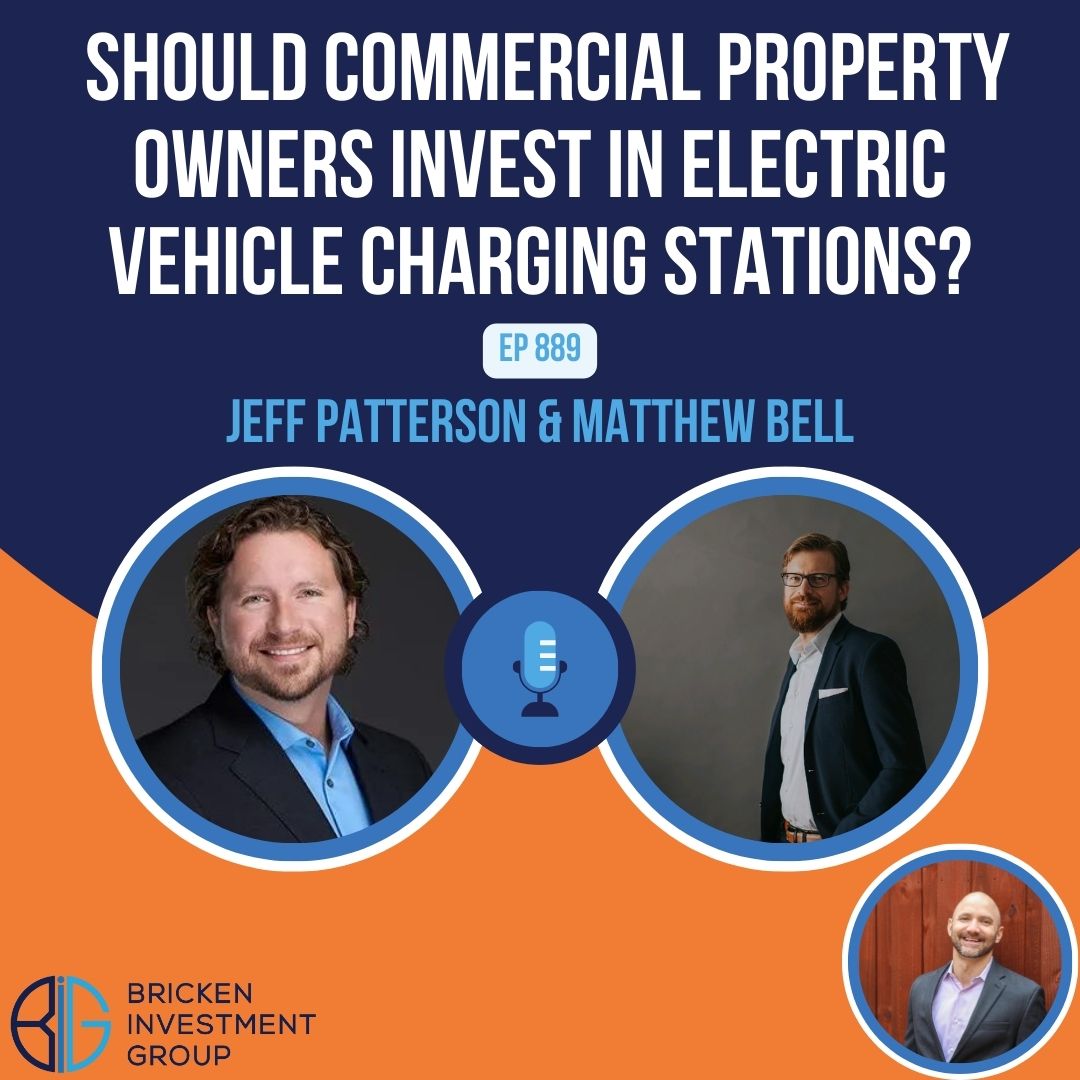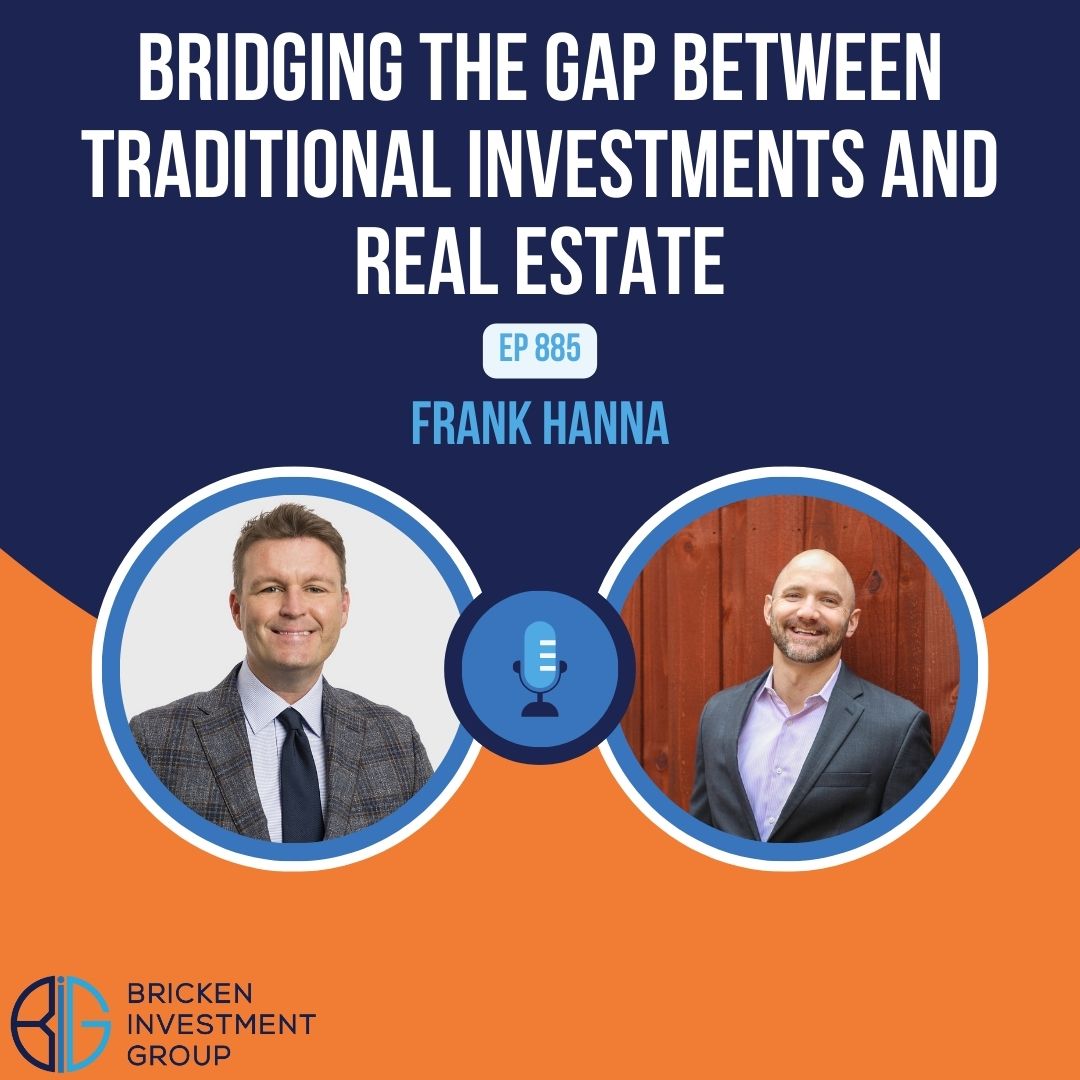Valuing Land for Development: Andrew Brewer's Unique Approach
Description
Today's guest is Andrew Brewer.
Andrew is a Real Estate Developer and a Buy & Hold Investor
Show summary:
In this episode real estate developer Andrew Brewer shares his journey from stationary engineering and facilities management to real estate development. He discusses how his background has equipped him with valuable skills and insights into asset management and construction. Brewer emphasizes the importance of continuous learning and understanding the concerns of property owners. He shares his strategy as a developer, the challenges of remodeling versus new construction, and his approach to valuing land for development projects. He also highlights the necessity of taking calculated risks for wealth building.
--------------------------------------------------------------
Stationary Engineering and Facilities Management (00:01:43 )
Experience Working on a High-Rise Building (00:04:13 )
Lessons Learned from Construction Defect Litigation (00:06:14 )
The skill set as an owner and investor (00:10:15 )
The difficulty of remodeling vs building new (00:11:21 )
Valuing shovel ready projects (00:18:28 )
The risk of investing (00:19:27 )
Valuing land and potential (00:20:20 )
Factors in determining offer price (00:22:09 )
--------------------------------------------------------------
Connect with Andrew:
Linkedin: https://www.linkedin.com/in/andrew-brewer-b6b042125/
Facebook: https://www.facebook.com/andrew.brewer.irongall
Web: www.irongallinvestments.com
Web: www.distance3development.com
Connect with Sam:
I love helping others place money outside of traditional investments that both diversify a strategy and provide solid predictable returns.
Facebook: https://www.facebook.com/HowtoscaleCRE/
LinkedIn: https://www.linkedin.com/in/samwilsonhowtoscalecre/
Email me → sam@brickeninvestmentgroup.com
SUBSCRIBE and LEAVE A RATING. Listen to How To Scale Commercial Real Estate Investing with Sam Wilson
Apple Podcasts: https://podcasts.apple.com/us/podcast/how-to-scale-commercial-real-estate/id1539979234
Spotify: https://open.spotify.com/show/4m0NWYzSvznEIjRBFtCgEL?si=e10d8e039b99475f
--------------------------------------------------------------
Want to read the full show notes of the episode? Check it out below:
Andrew Brewer (00:00:00 ) - What the owners look for. What do investors look for? What makes something a good investment, which is a different skill set to this is how you asset manage this facility. Um, and then I was able to use that knowledge and speaking with, you know, the HOA and the property owners at this facility because I'm starting to think like, okay, what are they thinking? You know, what are their concerns? They've bought this unit in this building. What are their concerns as an owner, which may be very different to my concerns as somebody that's trying to keep the lights on. And then how do you balance those two things? Um, so I think that, you know, that was really invaluable to, to starting my own company.
Intro (00:00:35 ) - Welcome to the how to Scale commercial real estate show. Whether you are an active or passive investor, we'll teach you how to scale your real estate investing business into something big.
Sam Wilson (00:00:48 ) - Andrew Brewer is a real estate developer and they buy and hold investor. Andrew.
Sam Wilson (00:00:53 ) - Welcome to the show.
Andrew Brewer (00:00:54 ) - Hey, thanks for having me. Absolutely.
Sam Wilson (00:00:56 ) - The pleasure is mine. Andrew. There are three questions I ask every guest who comes on the show in 90s or less. Can you tell me where did you start? Where are you now and how did you get there?
Andrew Brewer (00:01:05 ) - Um, so I started, uh, I grew up in the San Francisco Bay area, so I guess I started there. Um, I actually started my career as a butcher. Uh, I did that for eight years through high school and college. Uh, when I graduated college, I moved into stationary engineering, uh, which is facilities management of large commercial assets. And from there, um, I moved into, uh, running my own company and developing real estate. Uh, where I'm at right now is I run my own company and I develop real estate. And what was. I'm sorry, what was the third question?
Sam Wilson (00:01:40 ) - Where did you start? Where are you now? And how did you get there?
Andrew Brewer (00:01:43 ) - Uh, how I got here is I, you know, I did a lot of reading, you know, listen to podcast, read books, went to meetups, like, did that whole kind of route to educate myself about the ownership side of real estate? Uh, and I developed my skill set through my W2 job as a stationary engineer.
Andrew Brewer (00:02:01 ) - Uh, and then also by doing projects, uh, both by myself and with partners, uh, kind of mushed all of that knowledge and everything together to start my own firm, and here I am.
Sam Wilson (00:02:12 ) - Wow. That's a lot. A lot of moving pieces. I'm curious, what is stationary engineering? I've never heard that term, and that's, uh. I'd love to get a little insight on that and how that shaped what you do currently.
Andrew Brewer (00:02:25 ) - Definitely. Um, so stationary engineering, contrary to most people's first opinion, is not creating new types of paper. Um, it actually is the the other definition of the word stationary, which means like stationary as and it doesn't move. Uh, and that's um, that's as opposed to in that industry, marine engineering. So when you're dealing with like large boats, battleships, cargo ships, things of that nature, all of those ships have systems that, you know, keep that ship running. They have generators, boilers, filtration systems, um, all that kind of stuff which run, you know, the power for the ship, for it to move lights, you know, anything like that that's needed on a large ship.
Andrew Brewer (00:03:09 ) - Now, all of those systems can exist off a ship, and often they exist in buildings. So when you are a stationary engineer, you are doing all of that applied engineering work, but in a stationary facility, as opposed to a facility that moves. Um, so a stationary engineer could also be called, uh, like a facilities maintenance person or, you know, something like that. Uh, the engineering portion of it generally comes when you're dealing with a large systems like high pressure boilers or things of that nature, which is a little more in-depth and requires a much more specialized skill set than just, you know, swapping out. You know, light fixtures or something like that, which is something that, um, which all facilities maintenance people do. But it's only the engineers that get to work on the actual, like, big systems because something like, uh, a high pressure boiler, I mean, that could explode and kill people. So you need to know what you're doing. It can't just be some rando that comes in and starts working on it, uh, so that, um, that's that job, um, where I was working.
Andrew Brewer (00:04:13 ) - I mean, they have these in all types of buildings. Um, the facility I worked in for a number of years, uh, was in San Jose, California. Uh, it was a high rise building, 27 storeys, um, composed of 197 residential units and then eight ground floor commercial spaces. So it was half of a city block, that one facility, um, because it was a high rise. We had a lot of, uh, singular systems in the building, um, on a lot of apartments, like garden style apartments. When you think about the Hvac system, generally, you'll see like a roof, and there's just like a whole bunch of condensing units all in a row along the roof. You know, when you're in a 27 story building, you've got less roof area. You can't just fit a bunch of condensing units. You have one system for the entire building, uh, which would be a cooling tower or a chiller or something like that. And then that is supplying, um, you know, refrigerant and cooled water to all of the 197 Hvac units that are in there.
Andrew Brewer (00:05:13 ) - So it's a very different system that you have to work with. Um, so that's that's the building that I worked in. I started there as a utility engineer, worked my way up to the assistant chief engineer of that facility, um, and worked on, you know, ev
























